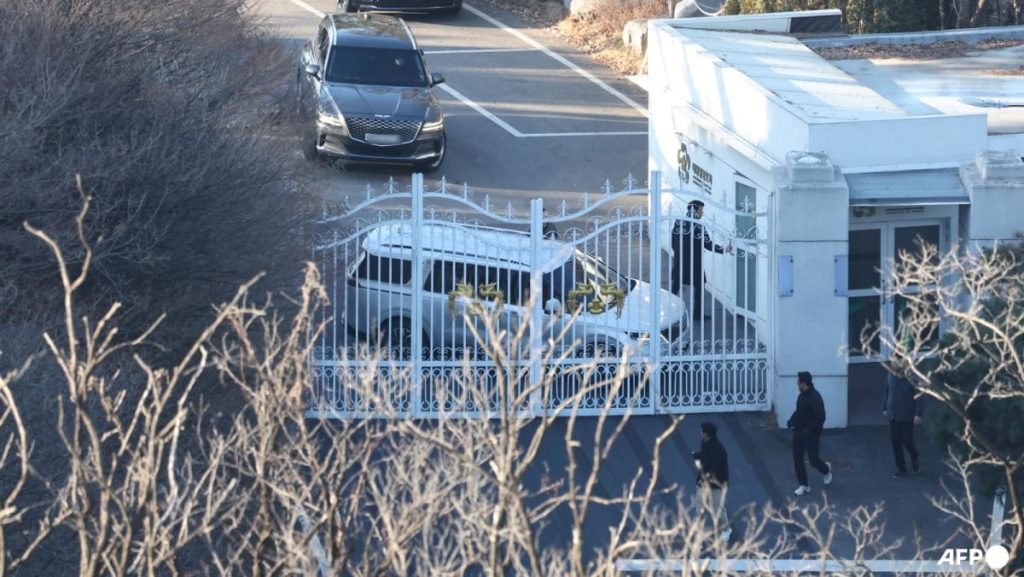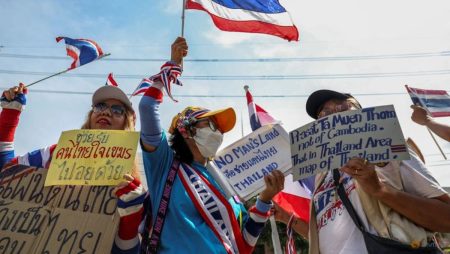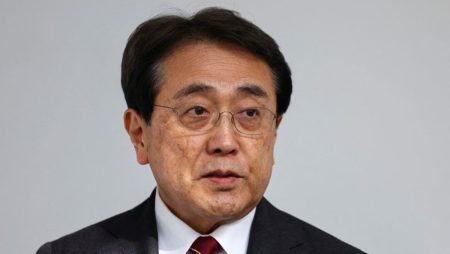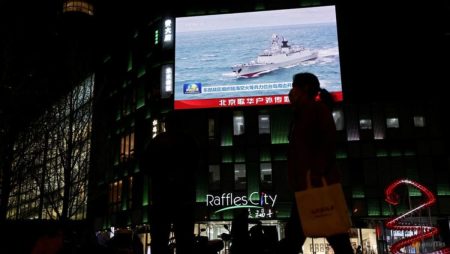The Presidential Security Service (PSS) of South Korea finds itself embroiled in a controversy surrounding its recent actions obstructing investigators attempting to execute a search warrant at the presidential office. This incident has raised questions about the PSS’s authority, its historical context, and the legality of its actions. The PSS, tasked with protecting the president, has a history deeply intertwined with South Korea’s authoritarian past, a legacy that continues to shape its operations and raise concerns about its potential overreach.
At the heart of the controversy are the soldiers of the Capital Defence Command, a unit likened to the United Kingdom’s Royal Guard, responsible for the direct protection of the president. These soldiers operate under a strict chain of command and are bound to follow the orders of the PSS, even if those orders conflict with directives from law enforcement or other investigative bodies. This rigid adherence to internal commands allowed the PSS to effectively block investigators from accessing the presidential office, raising serious questions about the balance of power and the rule of law. The soldiers’ actions, while seemingly in line with their assigned duties, have highlighted the potential for the PSS to obstruct justice by prioritizing the protection of the president above legal processes.
The PSS’s actions are rooted in a potentially “strong ultra-conservative ethos” within the organization, coupled with its history of significant power during South Korea’s authoritarian period. Under military regimes in the 1970s, particularly during the presidency of Park Chung-hee, the PSS wielded substantial influence, even playing a role in the internal power struggle that ultimately led to Park’s assassination by his intelligence chief. While the PSS’s powers were significantly curtailed following this incident, it still retains broad authority under the Presidential Security Act, which grants it the power to secure locations for the president. This legal framework, while intended to ensure the president’s safety, provides the PSS with considerable leeway, which critics argue can be exploited to obstruct legal proceedings.
The PSS justified its obstruction of investigators by invoking the sweeping powers granted to it under the Presidential Security Act. However, legal experts have challenged the legality of this action, arguing that the PSS’s interpretation of the law is overly broad and constitutes an abuse of power. Civic groups and opposition politicians have filed criminal complaints against PSS chief Park Jong-jun, accusing him of obstructing justice and violating the constitution. They argue that the PSS’s actions represent a clear overreach of its authority and a dangerous precedent for interfering with legal processes. The legal challenges raise fundamental questions about the scope of the PSS’s powers and the need for greater oversight to prevent future abuses.
The core issue at stake is whether the PSS’s mandate to protect the president supersedes the legal obligation to cooperate with investigations. Legal experts argue that while the PSS has a legitimate role in ensuring the president’s security, this mandate cannot be used to obstruct lawful investigations or interfere with the judicial process. The PSS’s actions have raised concerns about a potential conflict of interest, where the agency tasked with protecting the president also acts as a barrier to investigations that might involve the presidency. This conflict highlights the need for clearer legal boundaries and stronger oversight mechanisms to ensure accountability and prevent the PSS from acting as a shield against legal scrutiny.
The incident underscores the ongoing tension between executive power and the rule of law in South Korea. The PSS’s actions have brought into sharp focus the potential for agencies tasked with protecting the executive branch to overstep their bounds and obstruct justice. The legal challenges and public outcry surrounding this incident call for a thorough review of the PSS’s powers and the Presidential Security Act, aiming to strike a balance between ensuring presidential security and upholding the principles of transparency and accountability within a democratic framework. This review should consider establishing clearer guidelines for the PSS’s interactions with law enforcement agencies and implementing stronger oversight mechanisms to prevent future abuses of power.










